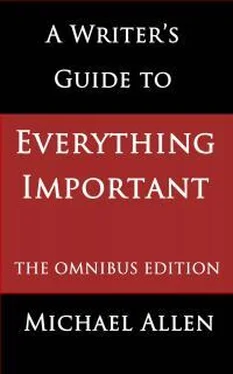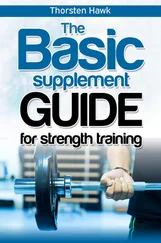The best advice I can give you, in closing, is that if you don’t find writing enjoyable, give it up and start doing something else instead.
APPENDIX
This appendix consists of a list of blogs about books and the book world. There are hundreds of such blogs, but if you start with the ones listed here, and read them on a regular basis, you will soon acquire a thorough knowledge of publishing in all its various forms.
It’s not easy to explain to you how lucky you are to be working as a writer in an era when this sort of information is readily available. It certainly wasn’t when I started out. Dozens of experienced writers, agents, lawyers, and – yes – even publishers, are making their knowledge and judgements available to you entirely free of charge.
That having been said, some of the bloggers are not too proud to ask you to leave a cash tip if you find a post of theirs particularly helpful. I have done so more than once, even after fifty years in the business, and so should you.
If you are flush with cash, you might care to subscribe to the two main trade journals of the book-publishing world. In the UK, you need The Bookseller . Current subscription rates are £196 p.a. if you live in the UK, £264 if you live elsewhere. In the US, the equivalent is Publishers Weekly , which will set you back $249 for a one-year print + digital subscription, and $399 if you live outside the US. (Digital-only rates for PW are cheaper.)
But wait. Before you rush off to subscribe to either of these two magazines, bear in mind that there may be a library near you which already subscribes, and makes the magazine available to the general public. So try that first; it’s a lot cheaper.
The blogs listed below are not in any particular order.
Books Inq. The thoughts of an old literary journalist and his friends.
The Passive Voice. David Vandagriff, media lawyer.
A Newbie’s Guide to Publishing. Joe Konrath, a big-time digital success, tells how he does it. And beats up any agents and publishers who say silly things online.
Blog of a Bookslut. Pretty much what it says on the label.
Caustic Cover Critic. Ditto.
David Gaughran. Modern author with forthright views.
Dean Wesley Smith. Author of over 100 novels. A man who works unhealthily hard and tells it like it is.
Kristine Kathryn Rusch. Dean’s wife, and amazingly knowledgeable about contracts and other trade secrets.
Digital Book World. Some very well informed commentators.
Mediabistro.com: EbookNewser.
Mediabistro.com: Galleycat. The bit that deals with traditional publishing.
The Digital Reader. The one really essential guide to the new digital universe.
Writer Beware: The Blog.
The Literary Saloon. Deals mainly with literary books, and those translated into English.
The Shatzkin files. Mike Shatzkin, experienced publishing consultant. His Dad was also a major figure in traditional publishing.
Jennifer Jackson. Blog by a US agent. Queries received in 2103: 6,152. New clients taken on in 2013: 2.
Pub Rants. ‘A very nice literary agent indulges in polite rants.’
Janet Reid. Agent.
Dystel & Goderich. Jane Dystel has had a distinguished career in publishing. Now an agent, and by the sound of it one of the more sensible ones.
Grumpy Old Bookman. Finally, this one is my own. Between 2004 and 2007 I wrote about 1.25 million words on this blog: reviews, news, comment, advice. There’s a lot of good stuff there if you search for it. Since 2007, I have been only an occasional blogger, mainly to let you know of the publication of one of my own new books.
You may have noticed that I have not provided hyperlinks in the main body of this book. Instead, I have assumed that you quite capable of googling a name or a subject if you wish to know more about something that has been mentioned in the text. And in any case, when you do start googling a name or a subject, you may, serendipitously, come across something which is not only relevant and fascinating, but also so obscure that not even I know about it.
BIBLIOGRAPHY
Over the years, literary agents have written some interesting books of memoirs, and some have written books on literary technique. Here are a few which are still in print, or available in ebook form.
Blake, Carole. From Pitch to Publication. An important book for those who write for the women’s market.
Lord, Sterling. Lord of Publishing. An overview of US publishing in the latter part of the twentieth century, as seen from a literary agent’s point of view.
Zuckerman, Albert. Writing the Blockbuster Novel . Al was the founder of the Writers House agency, and worked closely with some major bestsellers. This book describes a typical working relationship with Ken Follett. Probably the best single book on fiction writing that you can find. (Apart from my own, of course. Modesty gets you nowhere in the writing business.)
AFTERWORD
May I respectfully inform you that I (Michael Allen, in case you’ve forgotten the name) have written several other ebooks (with more planned) that are designed to provide straightforward and practical advice for writers at all stages of their careers.
If you are keen to learn more about the technique of writing fiction, try the following:
How to Write a Short Story that Works
How to Write a Novel that Works
In addition, much useful background on the worlds of book publishing, theatre, and screenwriting can be found in The Truth about Writing.
On the Survival of Rats in the Slush Pile is an essay on the pro-am approach to writing. A pro-am is an amateur who works to a professional standard. In other words, not a full-timer, but someone who, in the old days, would have been published in printed form, but who is now far too sensible to doing anything except self-publish via digital outlets.
There are also several other books in the Writer’s Guide series:
A Writer’s Guide to Emotion
A Writer’s Guide to Viewpoint
A Writer’s Guide to Style
A Writer’s Guide to Success
A Writer’s Guide to Traditional Publishing
All the above are readily available via Amazon, but only as Kindle ebooks at the time of writing. POD versions may follow.
To get a good overview of the kinds of fiction and non-fiction books that I have written in the past, please visit my author page on either the American branch or the co.uk branch of Amazon. Just searching for my name alone will just result in confusion, because it is so common. Hundreds of books by various Michaels and Allens will not help you.
Finally, please consider writing a brief review of this book on your local branch of Amazon.
A WRITER’S GUIDE TO EMOTION:
Here’s the Key to Selling More Fiction
Michael Allen
Copyright 2013 by Michael Allen
***
1. About this book
There is a story told about the nineteenth-century actor, Edmund Kean.
Kean was standing in the wings one night, watching his troupe of actors performing a Shakespearian tragedy. Standing beside him was his son, Charlie. Peeking through the curtains, Kean could see that the audience was absolutely rapt, their attention focused on the action; some of them had tears in their eyes.
‘We’re doing the trick, Charlie,’ Kean whispered to his son. ‘We’re doing the trick.’
What Kean meant by this was that he and his fellow actors were achieving their aim: they were making the audience feel a powerful emotion. And as a consequence of that, they were making themselves better known and in greater demand as actors.
Читать дальше












